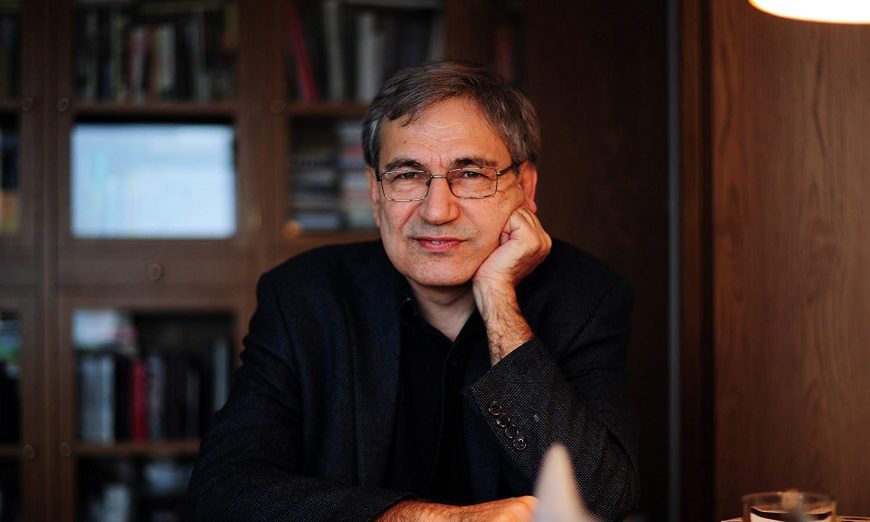An ordinary nationalist person in Turkey either dislikes or hates Pamuk. One of the main reasons for that is Pamuk’s remarks about past atrocities in Turkey. In 2005, during an interview with the Swiss publication Das Magazin, Pamuk said: “Thirty thousand Kurds have been killed here, and 1 million Armenians. And almost nobody dares to mention that. So I do.” That’s it. Just these few sentences created so much turmoil in Turkey. I believe Pamuk still suffers from it. First there was a charge against him under the infamous Article 301, for denigrating Turkishness. It is, of course, an historical irony that the person who glorifies Turkey, İstanbul, Anatolia and therefore “Turkishness” with his magnificent novels was put on trial for insulting it. This is Turkish tragicomedy. This is the price Turkey has long been paying for not confronting its past.
Pamuk was tried under this article before the article was finally amended and the case dropped. However, some legal avenues remained that could be used against Pamuk. A person who is now being tried in the Ergenekon (deep state) case and five of his friends brought a compensation case against Pamuk, claiming that their feelings were hurt because Pamuk’s remarks “denigrated Turkishness.” The court of first instance refused to hear the case, stating that no one could claim compensation for “an attack on personal rights” just for being a member of the Turkish nation. We all took a deep breath and hoped that this embarrassing process was closed. But then the nightmare started again when “plaintiffs” took the case before the Supreme Court of Appeals. That court overturned the decision of the court of first instance and decided that according to Article 66 of the Constitution, “Everyone connected to the Turkish State with the bond of citizenship is Turkish,” and that just as individuals had honor, feelings of belonging to a nation were also part of personal values. Do you see the implications of this decision? Theoretically every Turkish citizen, 70 million individuals, can bring cases seeking compensation against Pamuk. This is a legal lynching. In practice, it will not work like that — because of the statute of limitations, it is not possible to bring a new case for these past remarks against Pamuk.
And I think the appeals court will change this “precedent” in some other case in the future. They are just trying to give a strong “message” to Pamuk — the message of the Turkish “deep” state.
There were also some other campaigns against Pamuk in the Turkish media: Some “writers” and “columnists” accused him of imitation and plagiarism. During trials, he received many death threats, and later left Turkey for New York. When he returns to İstanbul, as he does occasionally, he does it secretly. What a shame for Turkish society!
Where does all this hatred come from? I’ve already mentioned one source, namely, the denial of the past. As with a neurotic person, when you touch old wounds, you confront an uncontrollable storm of anger in Turkey. You become a “traitor,” which is the easiest thing to be in my country.
I believe even if Pamuk had not said the things he said about past atrocities in Turkey, he would not have been welcomed enthusiastically by nationalist Turks. Because Pamuk talks on behalf of the real Turkey, which has a long history and rich traditions, which embraces different cultures, different ethnicities and different religions. For the nationalist Turk, Turkish history either starts 80 years ago or with a distorted Ottoman past. Pamuk represent peace with the real identity of this country, openness, harmony and a readiness to grow and to become richer culturally. For nationalist Turks, there is no friend except Turks, and Turkey is surrounded by enemies. In every country there are, of course, nationalist people, but in Turkey this “typology” is supposed to be the norm. The ideal citizen is a secular, nationalist, white Turk who adores Ataturk and his “revolutions.” The ideal citizen of Turkey is too artificial, too shallow to embrace any real depth like the one Orhan Pamuk represents. So Pamuk represents an unbearable figure for them. They can only handle him in this “lynching” context.
I recently realized that some nationalist Web sites were attacking me by drawing parallels between me and Pamuk. They think they are insulting me, but I really enjoyed the way one of them mentions my name: It says Orhan Pamuk Cengiz. I hope one day I actually deserve their compliment!
http://www.todayszaman.com/tz-web/news-191894-centerwhy-is-orhan-pamuk-hated-so-much-in-turkey-bribyibr-orhan-kemalcengiz-center.html

